
Find Help
More Items From Ergsy search
-

Can testicular cancer spread to other parts of the body?
Relevance: 100%
-

What is testicular cancer?
Relevance: 75%
-

Is testicular cancer treatable?
Relevance: 74%
-

What is testicular cancer?
Relevance: 73%
-

What are the stages of testicular cancer?
Relevance: 72%
-

What is testicular cancer?
Relevance: 71%
-

What are the symptoms of testicular cancer?
Relevance: 69%
-

What is the survival rate for testicular cancer?
Relevance: 67%
-

How is testicular cancer diagnosed?
Relevance: 66%
-

How common is testicular cancer?
Relevance: 63%
-

What causes testicular cancer?
Relevance: 63%
-

Who is at risk for testicular cancer?
Relevance: 63%
-

What types of treatments are available for testicular cancer?
Relevance: 62%
-

Can bowel cancer spread to other parts of the body?
Relevance: 62%
-

Is fertility affected by testicular cancer?
Relevance: 62%
-
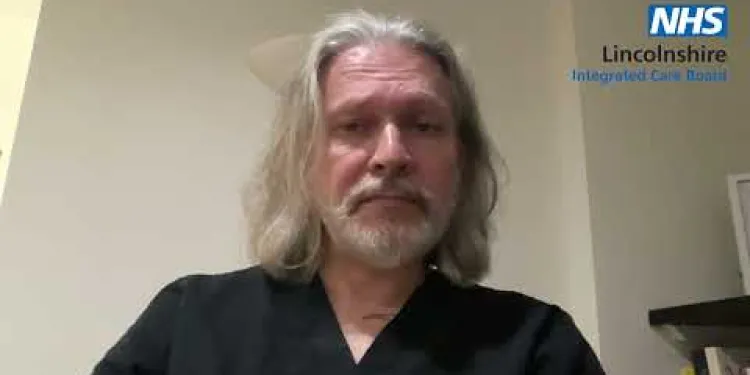
Getting to know your Testicles: Testicular Cancer Awareness with Dr James Howarth, Spilsby Surgery
Relevance: 62%
-

Can testicular cancer recur after treatment?
Relevance: 60%
-

What role do tumor markers play in testicular cancer?
Relevance: 59%
-

Are there support groups for those affected by testicular cancer?
Relevance: 58%
-

Can lifestyle changes help prevent testicular cancer?
Relevance: 57%
-

How can I perform a testicular self-exam?
Relevance: 47%
-
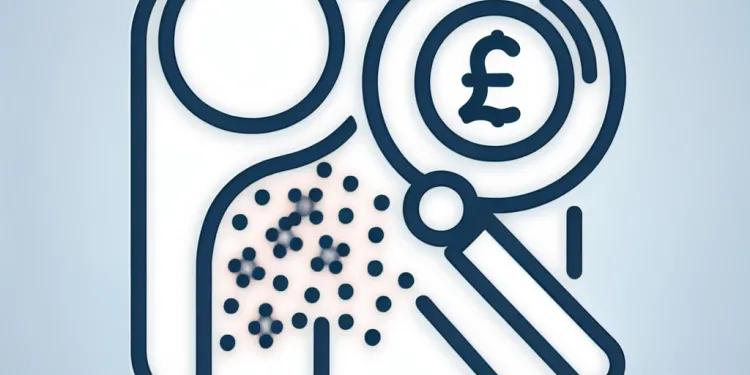
Can impetigo spread to other parts of my body?
Relevance: 46%
-

When should I see a doctor about potential testicular cancer?
Relevance: 38%
-

Can Botox spread to other parts of the body?
Relevance: 36%
-

What is Cancer?
Relevance: 32%
-

What is a seminoma?
Relevance: 32%
-

What is Bowel Cancer?
Relevance: 31%
-
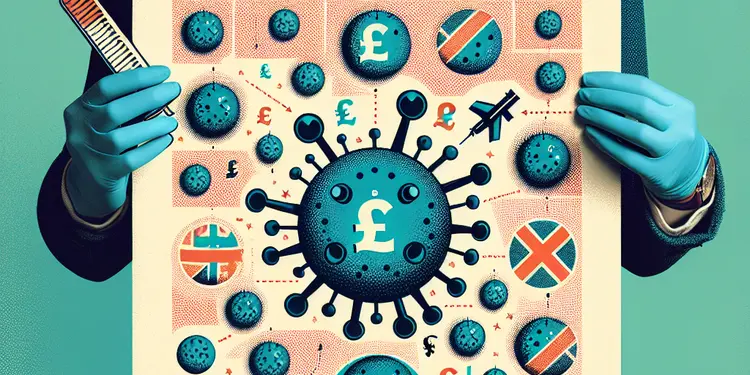
How is measles spread?
Relevance: 30%
-

Are AI body scans reliable?
Relevance: 30%
-

How is the stage of bowel cancer determined?
Relevance: 30%
-
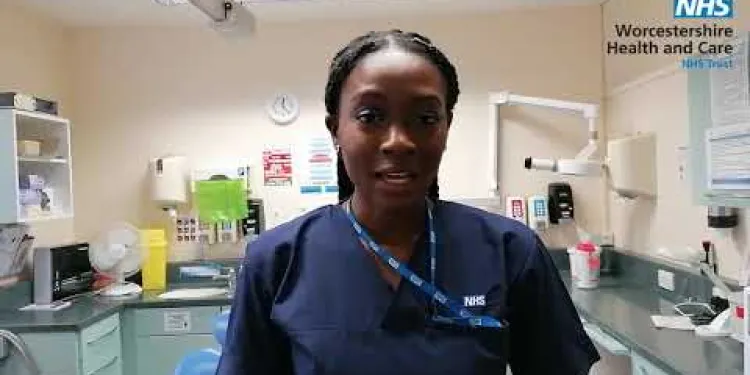
Mouth Cancer Awareness
Relevance: 30%
-
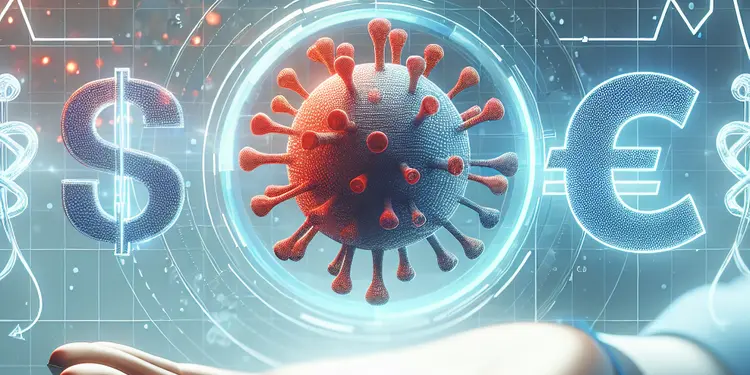
How is viral meningitis spread?
Relevance: 29%
-
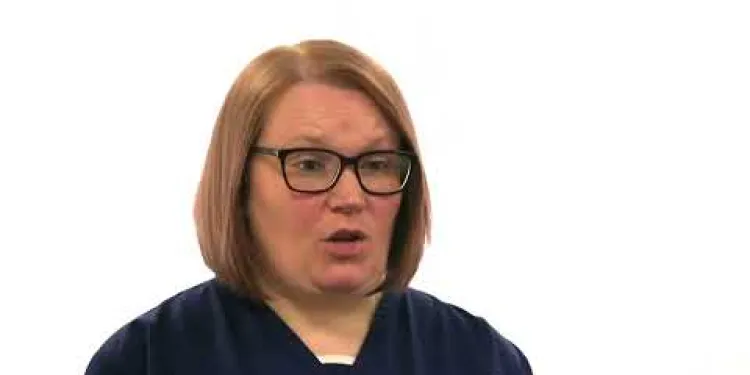
Vulval Cancer
Relevance: 29%
-

How is chickenpox spread?
Relevance: 29%
-

Is malaria spread by mosquitoes in the UK?
Relevance: 29%
-
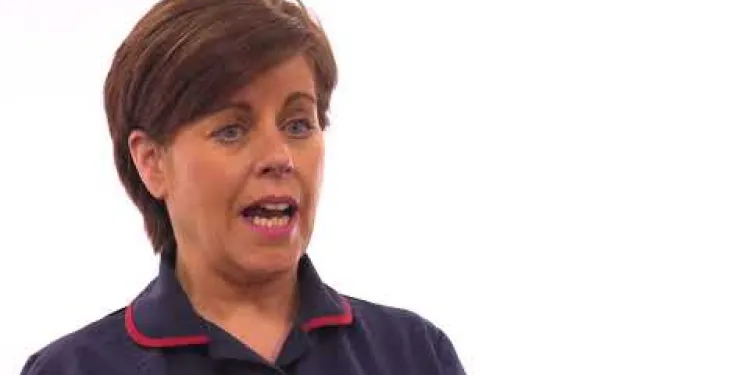
Endometrial Cancer
Relevance: 29%
-

How is prostate cancer treated?
Relevance: 29%
-
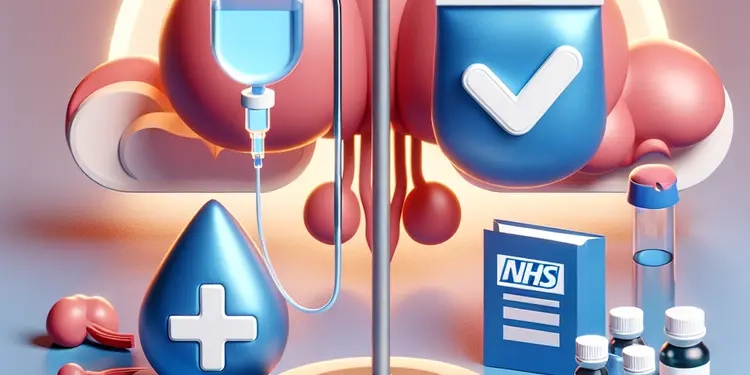
When is chemotherapy used for prostate cancer?
Relevance: 29%
-
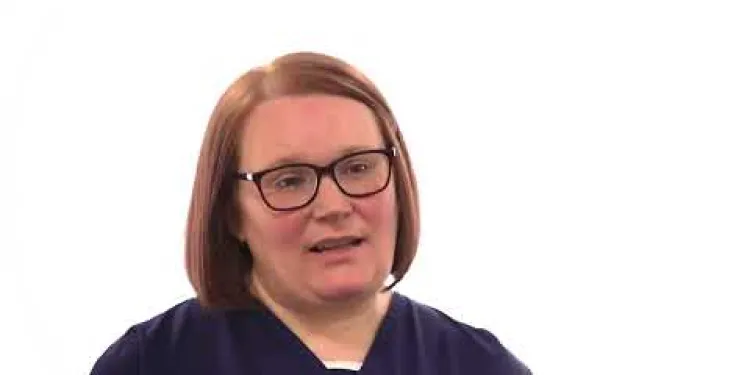
Vaginal Cancer
Relevance: 29%
-

How is norovirus spread?
Relevance: 29%
Understanding Testicular Cancer
Testicular cancer originates in the testes, which are part of the male reproductive system. This type of cancer is relatively rare compared to other cancers and most commonly affects younger men, usually between the ages of 15 and 49. The two main types of testicular cancer are seminomas and non-seminomas, both of which can exhibit different behaviors and rates of progression.
How Testicular Cancer Spreads
Testicular cancer can spread, or metastasize, from its original location in the testes to other parts of the body. This spread occurs when cancer cells break away from the original tumor and move through the body via the lymphatic system or the bloodstream. The process of metastasis creates secondary tumors in other organs and tissues, which can complicate treatment and reduce survival rates.
Common Sites of Metastasis
When testicular cancer spreads, it commonly first affects the lymph nodes located in the back of the abdomen. From there, the cancer may further spread to distant parts of the body such as the lungs and, less commonly, the liver or brain. This pattern of spread is typical, though it's crucial to note that not all cases of testicular cancer will metastasize. Early detection and treatment significantly reduce the risk of cancer spreading.
Symptoms of Metastasized Testicular Cancer
When testicular cancer spreads, new symptoms can emerge based on the affected areas. Swelling or lumps in the neck area might indicate lymph node involvement, while persistent cough or chest pain could suggest lung metastases. If the liver is affected, symptoms might include abdominal pain or jaundice. Brain involvement, although rare, can lead to headaches, seizures, or neurological deficits.
Diagnosis and Staging
Diagnosis of metastatic testicular cancer typically involves imaging tests such as CT scans, MRI, or PET scans to determine the extent of spread. Additionally, blood tests measuring tumor markers like AFP (alpha-fetoprotein), hCG (human chorionic gonadotropin), and LDH (lactate dehydrogenase) can provide crucial data about the disease's progression. Staging testicular cancer helps guide the treatment approach and predict outcomes.
Treatment Options
When localized, testicular cancer is highly treatable with surgical removal of the affected testicle, known as an orchiectomy. If the cancer has spread, a combination of treatments may be employed, including chemotherapy, radiation therapy, and further surgery. The treatment strategy will depend on the stage and type of cancer, as well as the overall health and preferences of the patient.
Prognosis and Survival Rates
The prognosis for testicular cancer patients varies depending on the extent of the disease. According to NHS data, the survival rate for localized testicular cancer is very high, with nearly all patients surviving five years post-diagnosis. Even in cases where cancer has spread, survival rates remain favourable with appropriate treatment. Early diagnosis significantly improves outcomes, underscoring the importance of awareness and regular testicular self-examinations.
Understanding Testicular Cancer
Testicular cancer starts in the testes. The testes are part of the male body that makes sperm. This cancer is not common. It mostly affects younger men, usually between 15 and 49 years old. There are two main types of testicular cancer: seminomas and non-seminomas. They can behave differently and grow at different rates.
How Testicular Cancer Spreads
Testicular cancer can move from the testes to other parts of the body. This happens when cancer cells break away and travel through the body. They can move through the lymphatic system or the blood. When they spread, they can form new tumors in other places, which can make treatment harder.
Common Sites of Spread
When testicular cancer spreads, it often first goes to the lymph nodes in the back of the stomach area. After that, it can move to other parts like the lungs. It can also go to the liver or brain, but this is less common. It is important to find the cancer early and treat it before it spreads.
Symptoms of Spread
If testicular cancer spreads, new symptoms can show up. A lump in the neck might mean it has reached the lymph nodes. A long-lasting cough or chest pain might mean it has gone to the lungs. Pain in the stomach or yellow skin could mean it is in the liver. Very rarely, it affects the brain, causing headaches or seizures.
Finding Out and Stages
Doctors use special pictures like CT scans and MRI to see if the cancer has spread. They also do blood tests to look for signs of cancer. These tests help doctors decide how to treat the cancer and what to expect in the future.
How to Treat It
If the cancer is just in the testicle, removing the testicle can be a treatment. This is called an orchiectomy. If it has spread, doctors might use a mix of treatments. This can include chemotherapy, radiation, or more surgeries. The treatment depends on how much and what type of cancer there is, and on the patient’s health.
What to Expect
How a patient does with testicular cancer can depend on how much it has spread. Most men live for a long time after finding the cancer if it is only in the testicle. Even if it spreads, many men do well with treatment. Finding the cancer early is very important. Men should check their testicles regularly to catch any changes.
Frequently Asked Questions
What is testicular cancer?
Testicular cancer is a type of cancer that develops in the testicles, a part of the male reproductive system.
Can testicular cancer spread to other parts of the body?
Yes, testicular cancer can spread to other parts of the body through a process known as metastasis.
How does testicular cancer spread?
Testicular cancer can spread through the lymphatic system or the bloodstream to distant parts of the body.
What are the common sites for testicular cancer metastasis?
Common sites for testicular cancer metastasis include the lymph nodes, lungs, liver, bones, and occasionally the brain.
What are the symptoms of testicular cancer that has spread?
Symptoms may include back pain, chest pain, cough, shortness of breath, and other symptoms depending on where the cancer has spread.
How is metastatic testicular cancer diagnosed?
Diagnosis may involve imaging tests like CT scans, MRI, or PET scans, along with blood tests to check for tumor markers.
Does the stage of testicular cancer indicate how far it has spread?
Yes, the stage of testicular cancer indicates the extent of the spread, with higher stages indicating more widespread disease.
Can testicular cancer be treated if it has spread?
Yes, metastatic testicular cancer can often be treated successfully with chemotherapy, radiation, surgery, or a combination of these.
What are the survival rates for metastatic testicular cancer?
Survival rates for metastatic testicular cancer are generally high, especially if the cancer is treated early and effectively.
What are the treatment options for testicular cancer that has spread?
Treatment options may include chemotherapy, surgery to remove metastatic tumors, and radiation therapy.
Is chemotherapy effective for testicular cancer that has spread?
Yes, chemotherapy is often effective and is a common treatment for testicular cancer that has spread.
Can radiation therapy be used for metastatic testicular cancer?
Radiation therapy is sometimes used, particularly if the cancer has spread to certain areas like the brain.
Is surgery an option for testicular cancer that has spread?
Surgery can be an option to remove metastatic tumors or residual mass after chemotherapy.
What is the role of tumor markers in monitoring testicular cancer?
Tumor markers help in diagnosing, staging, and monitoring the response to treatment in testicular cancer.
How quickly can testicular cancer spread?
The rate at which testicular cancer spreads can vary, but some types, like embryonal carcinoma, can spread relatively quickly.
Are there different types of testicular cancer?
Yes, there are different types, including seminomas and non-seminomas, which can behave differently and respond differently to treatment.
Can lifestyle changes prevent the spread of testicular cancer?
While healthy lifestyle changes are beneficial, they cannot prevent the spread of cancer but may support overall health.
What is the first step if testicular cancer is suspected to have spread?
The first step is to consult with a healthcare provider for a thorough evaluation and appropriate diagnostic testing.
Is follow-up care important after treatment for testicular cancer?
Yes, regular follow-up care is crucial to monitor for recurrence and manage any long-term effects of treatment.
Can testicular cancer recur in other parts of the body after treatment?
Yes, there is a possibility of recurrence, and it is crucial to have regular follow-ups to monitor for any signs of cancer returning.
What is testicular cancer?
Testicular cancer is when bad cells grow in the balls. It can make a lump.
How to notice:
- Feel for a lump in your balls.
- If it hurts or feels heavy, tell an adult.
Helpful tips:
- Ask someone you trust to explain more.
- Watch a video that talks about it.
Testicular cancer is a sickness that happens in the testicles. The testicles are a part of the male body that helps make babies.
Can testicular cancer move to other parts of the body?
Yes, testicular cancer can move to other parts of the body. This is called spreading. It means that cancer can move from the testicles to places like the lungs, liver, or brain.
If someone has testicular cancer, it's important to go to the doctor. They can do tests to see if it is spreading. Treatment can help stop the cancer from moving.
Here are some tools that can help:
- A doctor or nurse can explain things and answer questions.
- Pictures or videos can help show what is happening in the body.
- Writing down questions before seeing the doctor can help remember what to ask.
Yes, cancer in the testicles can move to other parts of the body. This is called metastasis.
How does testicular cancer spread?
Cancer can move from one place to another. This is called spreading.
Testicular cancer can spread in the body.
Cancer can spread to:
- Other parts of the testicle
- Areas near the testicle
- Other parts of the body, like the lungs
If you need help with reading, you can ask someone to read it with you. You can also use reading tools like audiobooks or apps that read text out loud.
Testicular cancer can move to other parts of the body. It can travel through the body's blood or the lymphatic system, which is a part of the body like tubes and nodes that help keep us healthy.
Where does testicular cancer often spread?
Testicular cancer can move to other parts of the body. Here are some places it might go:
- Lungs (the parts we use to breathe)
- Liver (helps clean our blood)
- Lymph nodes (little parts that help fight germs)
- Brain (the part we use to think)
If you want help understanding this, you can:
- Ask someone you trust to explain it to you.
- Use pictures or diagrams to see how it works.
When testicular cancer spreads, it usually moves to other parts of the body. It can go to the lymph nodes, lungs, liver, bones, and sometimes the brain.
What happens when testicular cancer spreads?
When cancer moves to other parts of the body, it is called spreading. Here are some signs to watch for:
- Pain in the back
- Trouble breathing
- Feeling very tired all the time
- Coughing that does not go away
- Swelling in the belly
If you or someone you know has these signs, it is important to see a doctor. They can help.
Using a calendar or reminder app on a phone can help keep track of any changes or doctor visits.
You might feel pain in your back or chest. You could have a cough or find it hard to breathe. These are signs that cancer might be in your body. It depends on where the cancer is.
How do doctors find out if testicular cancer has spread?
Doctors use different tests to see if testicular cancer has moved to other parts of the body. Here are some things they might do:
- Talk to the patient: The doctor asks the patient questions about their health and how they feel.
- Check the patient: The doctor looks and feels to see if there are any lumps or changes in the body.
- Blood tests: The doctor takes some of the patient's blood to look for special signs of cancer.
- Scans: The doctor uses machines like X-rays, CT scans, or MRIs to take pictures of the inside of the body.
These tests help the doctor know if the cancer is only in the testicles or if it has spread. It is important for the patient to go to the doctor if they think something is wrong.
It can be helpful for patients to:
- Have someone go to the appointment with them.
- Make a list of questions to ask the doctor.
- Write down what the doctor says.
Doctors use special pictures like CT scans, MRI, or PET scans to see inside the body. They also do blood tests to look for signs of tumors.
Does the stage of testicular cancer show how much it has spread?
Testicular cancer stage tells us if the cancer has spread. The lower the stage, the less it has spread.
Here are some tips to help understand:
- Use pictures to show how cancer stages look.
- Ask someone you trust to read it with you.
- Use simple charts or diagrams.
- Look for easy words and short sentences.
Yes, the stage of testicular cancer shows how much the cancer has spread. Higher stages mean the cancer has spread more.
Can testicular cancer be treated if it has spread?
Yes, testicular cancer can still be treated if it has spread. Doctors have different ways to help. They might use medicine, special lights, or operations. Talk to your doctor to learn what is best for you.
Here are some things that can help:
- Ask someone to come with you to your doctor visits. They can help remember what the doctor says.
- Use a notebook to write down questions before your visit.
- Bring a recorder, if allowed, to record the doctor’s answers.
- Use simple words when talking to your doctor. Don't be afraid to ask if you don't understand something.
Yes, testicular cancer that has spread can usually be treated well. Doctors might use medicine, special rays, surgery, or a mix of these to help. This mix is called a “treatment plan.”
How many people live after having metastatic testicular cancer?
People who have testicular cancer that has spread to other parts of their body usually have a good chance of getting better. This is especially true if doctors start treating it early and do a good job.
What can be done if testicular cancer has spread?
If testicular cancer moves to other parts of the body, there are ways to help. Here are some things doctors may do:
- Chemotherapy: This is special medicine that can kill cancer cells.
- Surgery: Doctors might take out the cancer with an operation.
- Radiation therapy: This uses strong rays, like X-rays, to target and kill cancer cells.
It’s important to talk to a doctor who knows a lot about testicular cancer. They can explain what is best and answer any questions.
Using pictures, videos, or talking to someone who can explain with simple words can help. It's okay to ask others for help in understanding too.
There are ways to help make someone better. These can include using strong medicine, having an operation to take out any cancer that has spread, and using special rays to kill cancer cells.
Does chemo work for testicular cancer that has spread?
Yes, chemotherapy can help a lot. Doctors use it often to treat testicular cancer that has spread.
Can radiation therapy treat cancer that has spread from the testicles?
Doctors use a strong light called radiation to treat cancer. They use it when cancer spreads to places like the brain.
Can doctors do surgery for testicular cancer that has spread?
Surgery can help take out tumors or leftover lumps after you have had medicine that kills cancer cells. This is called chemotherapy.
How do tumor markers help watch testicular cancer?
Tumor markers are special things in the blood that doctors check. They help doctors see if there is cancer.
For testicular cancer, checking tumor markers is very important. It helps doctors see if the cancer is still there or if it has come back.
Doctors take a blood test to look for these markers. This test is like a tool to help them know how well treatment is working.
If you need help understanding these tests, you can ask your doctor to explain. You can also use pictures or videos to help you learn more.
Tumor markers are like clues that help doctors find, understand, and treat testicular cancer. These clues help in three ways:
- They help doctors know if someone has cancer.
- They show how much cancer has spread.
- They check if the treatment is working.
Supportive tools or techniques:
- Use pictures to help understand what tumor markers do.
- Ask someone to read with you and explain the tricky parts.
How fast can cancer in the testicles grow?
Cancer in the testicles can grow fast, but each case is different. It is important to see a doctor quickly if you notice any changes. Tools that can help include seeing pictures, listening to sounds, or asking someone to explain. Always talk to a doctor if you are worried.
Testicular cancer can grow at different speeds. Some kinds, like embryonal carcinoma, can grow and spread fast.
Are there different kinds of testicular cancer?
Yes, testicular cancer can be of different kinds. Testicular cancer starts in the testicles (balls), which are part of the male body.
Here are some easy tips to help you understand:
- Use picture books or diagrams to learn more about the body.
- Watch videos made for children about health and the body.
- Ask a grown-up you trust to explain it to you.
Yes, there are different types of testicular cancer. They are called seminomas and non-seminomas. These types can act differently and may need different treatments.
Can changing how you live stop testicular cancer from spreading?
Testicular cancer is a type of cancer that happens in the testicles. Doctors do not know exactly what causes it. But some things might help you stay healthy:
- Eat healthy foods like fruits and vegetables.
- Exercise often, like playing or going for walks.
- See a doctor for check-ups to catch any changes early.
- Talk to someone if you feel worried or scared. They can help you feel better.
It can help to use tools like:
- Talking to a friend or family member about how you feel.
- Making simple notes or drawings to remember important things.
- Asking for help when you need it.
Remember, it's good to take care of yourself. If you have questions, ask a doctor or nurse.
Living a healthy life is good for you. It can help you feel strong and well. But, it cannot stop cancer from spreading.
What should you do first if you think testicular cancer has spread?
If you or someone you know thinks testicular cancer has moved to other parts of the body, go to the doctor right away. The doctor can do special tests to find out more. It is important to talk to someone who can help and support you, like a family member or a friend.
First, talk to your doctor for a full check-up to see what is wrong and to get the right tests done.
Why is it important to see the doctor after testicular cancer treatment?
It is very important to visit the doctor after your treatment for testicular cancer. This is called follow-up care.
The doctor checks to make sure the cancer is gone and not coming back.
These visits help you stay healthy. Tell your doctor if you feel unwell.
You can use a calendar or phone to remind you of your doctor appointments.
Yes, it is very important to keep seeing the doctor regularly after treatment. This helps to check if the problem comes back and to take care of any side effects from the treatment.
Can testicular cancer come back in other parts of the body after treatment?
Sometimes, cancer can come back after you get better. This is called a "recurrence."
Testicular cancer might come back in a different part of the body, not just in the testicles. Doctors will check for this during follow-up visits.
Using a calendar to remember doctor appointments can help. You can also ask someone to go with you to the doctor to help listen and ask questions.
Yes, the cancer might come back. It is important to have regular check-ups to see if the cancer is coming back.
Useful Links
This website offers general information and is not a substitute for professional advice.
Always seek guidance from qualified professionals.
If you have any medical concerns or need urgent help, contact a healthcare professional or emergency services immediately.
Some of this content was generated with AI assistance. We’ve done our best to keep it accurate, helpful, and human-friendly.
- Ergsy carfully checks the information in the videos we provide here.
- Videos shown by Youtube after a video has completed, have NOT been reviewed by ERGSY.
- To view, click the arrow in centre of video.
- Most of the videos you find here will have subtitles and/or closed captions available.
- You may need to turn these on, and choose your preferred language.
- Go to the video you'd like to watch.
- If closed captions (CC) are available, settings will be visible on the bottom right of the video player.
- To turn on Captions, click settings .
- To turn off Captions, click settings again.
More Items From Ergsy search
-

Can testicular cancer spread to other parts of the body?
Relevance: 100%
-

What is testicular cancer?
Relevance: 75%
-

Is testicular cancer treatable?
Relevance: 74%
-

What is testicular cancer?
Relevance: 73%
-

What are the stages of testicular cancer?
Relevance: 72%
-

What is testicular cancer?
Relevance: 71%
-

What are the symptoms of testicular cancer?
Relevance: 69%
-

What is the survival rate for testicular cancer?
Relevance: 67%
-

How is testicular cancer diagnosed?
Relevance: 66%
-

How common is testicular cancer?
Relevance: 63%
-

What causes testicular cancer?
Relevance: 63%
-

Who is at risk for testicular cancer?
Relevance: 63%
-

What types of treatments are available for testicular cancer?
Relevance: 62%
-

Can bowel cancer spread to other parts of the body?
Relevance: 62%
-

Is fertility affected by testicular cancer?
Relevance: 62%
-

Getting to know your Testicles: Testicular Cancer Awareness with Dr James Howarth, Spilsby Surgery
Relevance: 62%
-

Can testicular cancer recur after treatment?
Relevance: 60%
-

What role do tumor markers play in testicular cancer?
Relevance: 59%
-

Are there support groups for those affected by testicular cancer?
Relevance: 58%
-

Can lifestyle changes help prevent testicular cancer?
Relevance: 57%
-

How can I perform a testicular self-exam?
Relevance: 47%
-

Can impetigo spread to other parts of my body?
Relevance: 46%
-

When should I see a doctor about potential testicular cancer?
Relevance: 38%
-

Can Botox spread to other parts of the body?
Relevance: 36%
-

What is Cancer?
Relevance: 32%
-

What is a seminoma?
Relevance: 32%
-

What is Bowel Cancer?
Relevance: 31%
-

How is measles spread?
Relevance: 30%
-

Are AI body scans reliable?
Relevance: 30%
-

How is the stage of bowel cancer determined?
Relevance: 30%
-

Mouth Cancer Awareness
Relevance: 30%
-

How is viral meningitis spread?
Relevance: 29%
-

Vulval Cancer
Relevance: 29%
-

How is chickenpox spread?
Relevance: 29%
-

Is malaria spread by mosquitoes in the UK?
Relevance: 29%
-

Endometrial Cancer
Relevance: 29%
-

How is prostate cancer treated?
Relevance: 29%
-

When is chemotherapy used for prostate cancer?
Relevance: 29%
-

Vaginal Cancer
Relevance: 29%
-

How is norovirus spread?
Relevance: 29%


